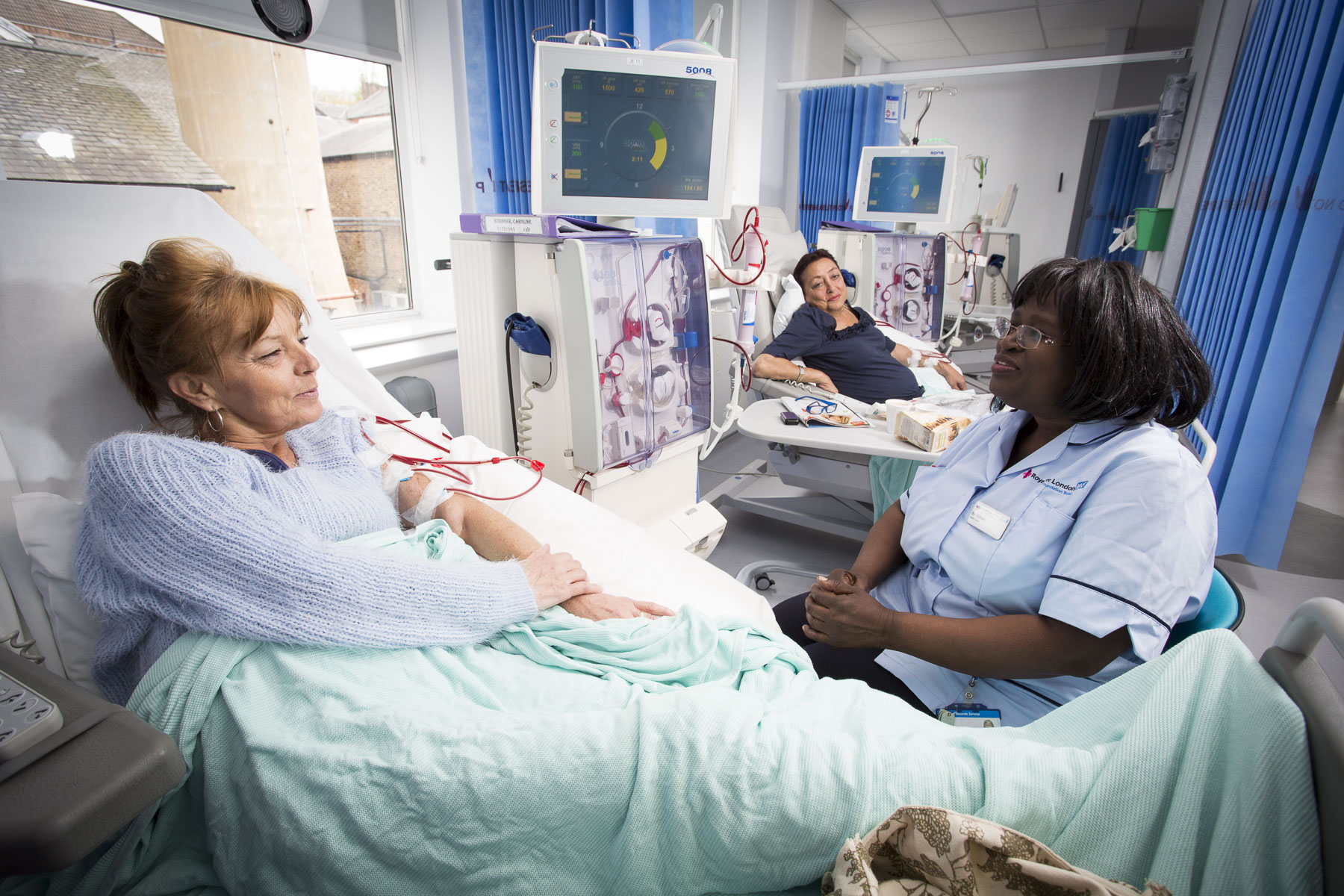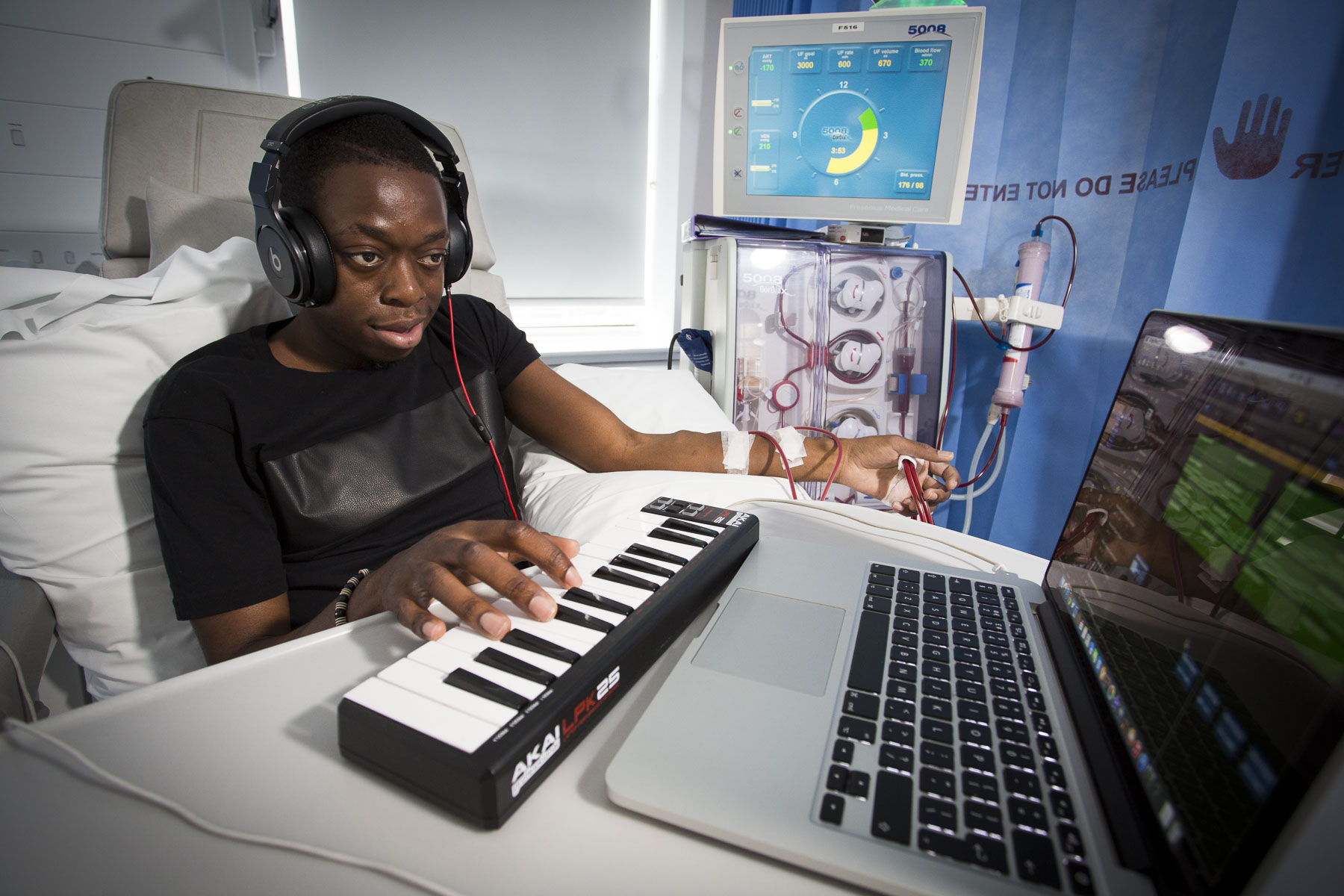Dialysis patients are being given the chance to take control of their care at the Royal Free London’s new supported self-care dialysis unit.
The unit, which opened at the trust’s kidney and diabetes centre at St Pancras Hospital in late March, offers eligible patients receiving dialysis at any of our current sites the chance to have more flexibility and independence in their dialysis care.
After receiving the appropriate training, patients using the unit are able to carry out some or all of their dialysis treatment themselves. By reducing reliance on nursing assistance the system gives patients greater flexibility and cuts the amount of time they spend at each treatment.
Once fully operational the self-care unit, adjacent to what is currently known as the Mary Rankin unit, will be able to provide dialysis for up to 72 patients.
The new unit also includes a dedicated supported self-care training area available to all patients using the unit. Patients will attend consultant-led dialysis clinics and be able to access dietetics, social care and psychology services at St Pancras.
After suffering permanent kidney damage as an infant, musician and sound engineer William Tackie, 27, started undergoing dialysis eight years ago. He has been managing his own care from start to finish for the past three years.
He said that learning self-care had vastly improved his dialysis experience: “The thought of doing it yourself at first is daunting, but you begin to realise that it is actually not as hard as you thought it was going to be. The more time you spend getting into it the easier it becomes.”
William, who uses his dialysis time to work on his music, added: “It’s really liberating being able to do it myself.
“Instead of waiting for a nurse who might be busy to get you set up, and then help you off when it’s finished, you can get started on your own and take yourself off. By the time someone would be there to help you off the machine you have already left.
“It’s also kind of impressive and really satisfying doing it myself. I have even shown other patients what to do and given them advice.”
Diane Walker, home and supported self-care dialysis specialist sister, said that self-care patients were put through an intensive week-by-week training programme before they were allowed to completely take over their own care.
 “It’s not just the treatment,” she said. “They have to have the background knowledge about their diet and medication, blood results, how to look after the access line and infection control.”
“It’s not just the treatment,” she said. “They have to have the background knowledge about their diet and medication, blood results, how to look after the access line and infection control.”
“People surprise you. You might get a lady in here who is 70 years old who wants to do everything for herself and if you try and help she says ‘no I will do it’.”
Diane said that the training and skills required to administer self-care helped many patients escape the feeling of helplessness often associated with dialysis.
She said: “You have patients who are struggling to come to terms with their condition, but by learning about their dialysis and doing it for themselves they get a buzz out of it and a sense of achievement.
“Patients have more flexibility as they can come in at a time that suits them. We don’t have to consider whether there is a nurse there who can help them get set up.
“It’s all about making the patient’s life easier and giving them more flexibility without putting a machine in their home.”
She added that the different structure had helped to foster a more communal atmosphere.
She said: “We get patients who are more advanced in their leaning who see patients struggling and they will intervene and give them advice, and then they have a natter and introduce themselves.”
Find out more about dialysis services at the Royal Free London.
ENDS
Notes to editors
Media contacts: daniel.obrien1@nhs.net or call 020 7317 7740
Image 1: William Tackie working on his music during his dialysis treatment.
Image 2: Patients Caroline Stringer (left) and Mellia Erotokritou.
About the Royal Free London NHS Foundation Trust
The Royal Free began as a pioneering organisation and continues to play a leading role in the care of patients. Our mission is to provide world class expertise and local care. In the 21st century, the Royal Free London continues to lead improvements in healthcare.
The Royal Free London attracts patients from across the country and beyond to its specialist services in liver, kidney and bone marrow transplantation, haemophilia, renal, HIV, infectious diseases, plastic surgery, immunology, vascular surgery, cardiology, amyloidosis and scleroderma and we are a member of the academic health science partnership UCLPartners.
In July 2014 Barnet Hospital and Chase Farm Hospital became part of the Royal Free London.
 Translate
Translate
